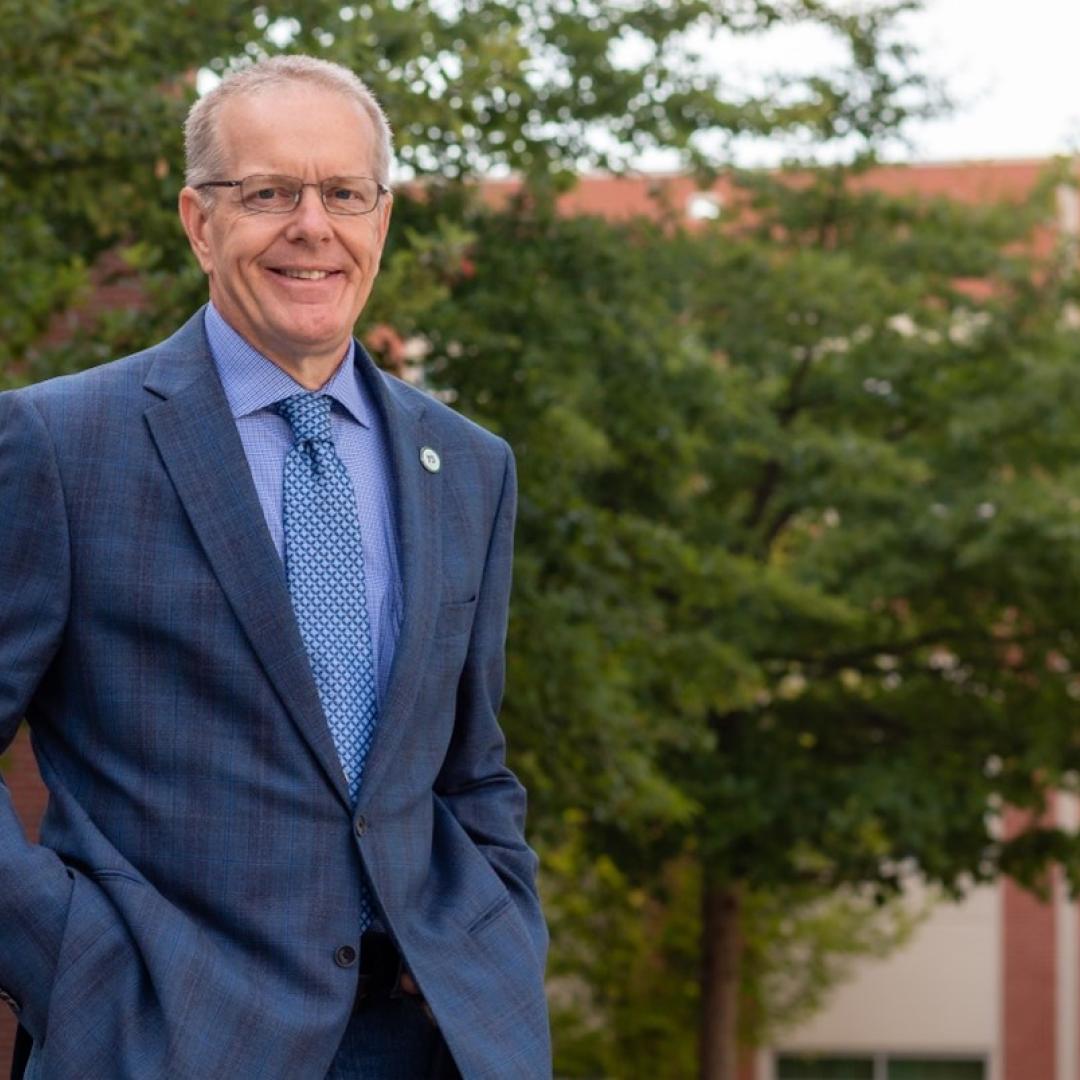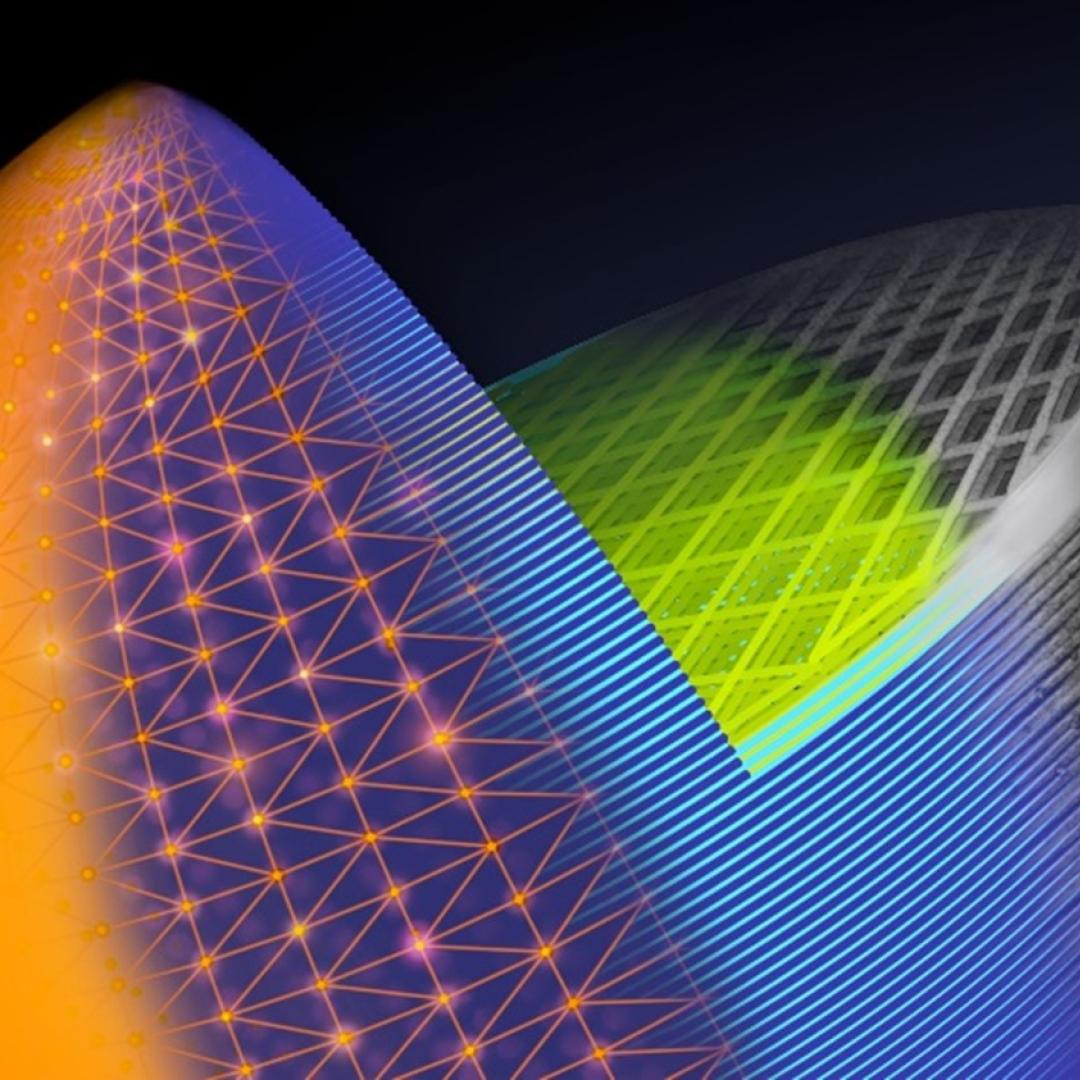
Filter News
Area of Research
- Advanced Manufacturing (5)
- Biological Systems (2)
- Biology and Environment (80)
- Biology and Soft Matter (1)
- Building Technologies (2)
- Clean Energy (97)
- Climate and Environmental Systems (2)
- Computational Engineering (2)
- Computer Science (5)
- Energy Sciences (1)
- Fusion and Fission (7)
- Fusion Energy (2)
- Materials (32)
- Materials for Computing (5)
- Mathematics (1)
- National Security (13)
- Neutron Science (8)
- Nuclear Science and Technology (1)
- Quantum information Science (2)
- Supercomputing (47)
- Transportation Systems (2)
News Type
News Topics
- (-) Big Data (39)
- (-) Bioenergy (67)
- (-) Biotechnology (14)
- (-) Climate Change (71)
- (-) Composites (15)
- (-) Frontier (25)
- (-) Physics (32)
- (-) Sustainable Energy (89)
- (-) Transportation (62)
- 3-D Printing/Advanced Manufacturing (70)
- Advanced Reactors (21)
- Artificial Intelligence (59)
- Biology (77)
- Biomedical (39)
- Buildings (38)
- Chemical Sciences (34)
- Clean Water (27)
- Computer Science (122)
- Coronavirus (28)
- Critical Materials (14)
- Cybersecurity (17)
- Decarbonization (55)
- Education (1)
- Emergency (2)
- Energy Storage (60)
- Environment (146)
- Exascale Computing (26)
- Fossil Energy (5)
- Fusion (39)
- Grid (43)
- High-Performance Computing (54)
- Hydropower (11)
- Irradiation (2)
- Isotopes (32)
- ITER (5)
- Machine Learning (33)
- Materials (78)
- Materials Science (79)
- Mathematics (8)
- Mercury (10)
- Microelectronics (2)
- Microscopy (31)
- Molten Salt (6)
- Nanotechnology (28)
- National Security (38)
- Net Zero (10)
- Neutron Science (74)
- Nuclear Energy (73)
- Partnerships (17)
- Polymers (17)
- Quantum Computing (24)
- Quantum Science (40)
- Renewable Energy (1)
- Security (12)
- Simulation (37)
- Software (1)
- Space Exploration (22)
- Statistics (2)
- Summit (36)
- Transformational Challenge Reactor (3)
Media Contacts
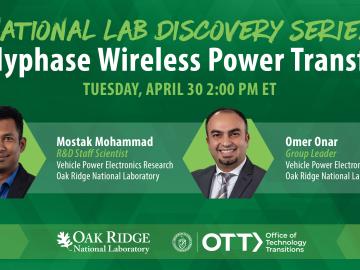
ORNL’s Omer Onar and Mostak Mohammad will present on ORNL's wireless charging technology in DOE’s Office of Technology Transitions National Lab Discovery Series Tuesday, April 30.
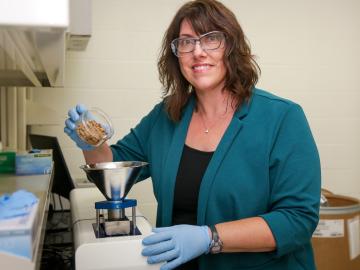
ORNL’s Erin Webb is co-leading a new Circular Bioeconomy Systems Convergent Research Initiative focused on advancing production and use of renewable carbon from Tennessee to meet societal needs.
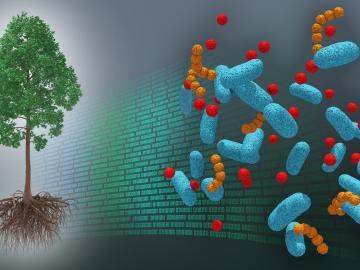
A first-ever dataset bridging molecular information about the poplar tree microbiome to ecosystem-level processes has been released by a team of DOE scientists led by ORNL. The project aims to inform research regarding how natural systems function, their vulnerability to a changing climate and ultimately how plants might be engineered for better performance as sources of bioenergy and natural carbon storage.
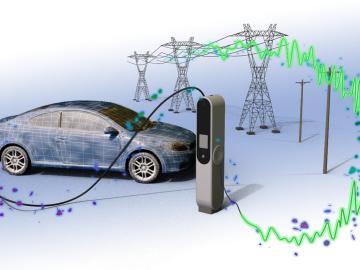
ORNL researchers are working to make EV charging more resilient by developing algorithms to deal with both internal and external triggers of charger failure. This will help charging stations remain available to traveling EV drivers, reducing range anxiety.
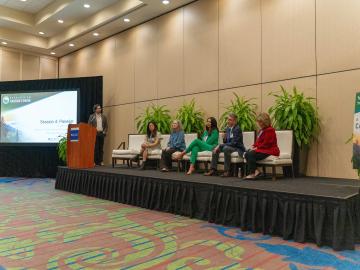
ORNL hosted the second annual Appalachian Carbon Forum in Lexington March 7-8, 2024, where ORNL and University of Kentucky’s Center for Applied Energy Research scientists led discussions with representatives from
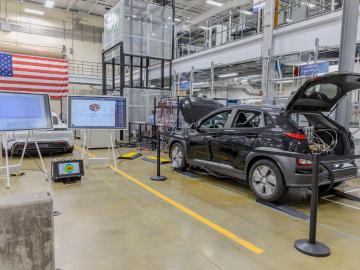
A team of researchers at ORNL demonstrated that a light-duty passenger electric vehicle can be wirelessly charged at 100-kW with 96% efficiency using polyphase electromagnetic coupling coils with rotating magnetic fields.
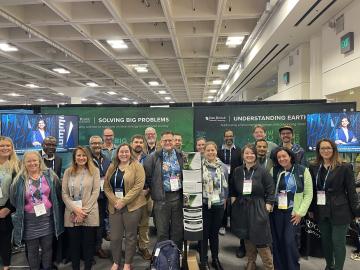
ORNL scientists and researchers attended the annual American Geophysical Union meeting and came away inspired for the year ahead in geospatial, earth and climate science.
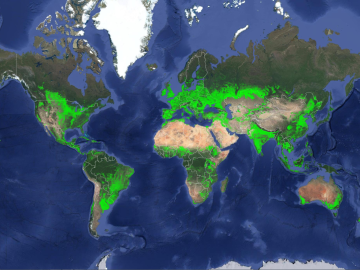
ORNL climate modeling expertise contributed to a project that assessed global emissions of ammonia from croplands now and in a warmer future, while also identifying solutions tuned to local growing conditions.
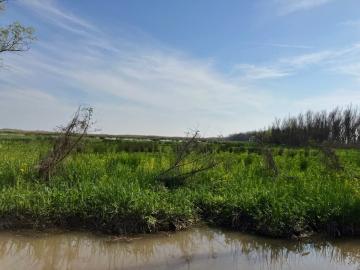
Scientists at the Department of Energy’s Oak Ridge National Laboratory are using a new modeling framework in conjunction with data collected from marshes in the Mississippi Delta to improve predictions of climate-warming methane and nitrous oxide.
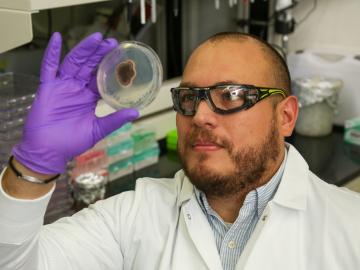
New computational framework speeds discovery of fungal metabolites, key to plant health and used in drug therapies and for other uses.


